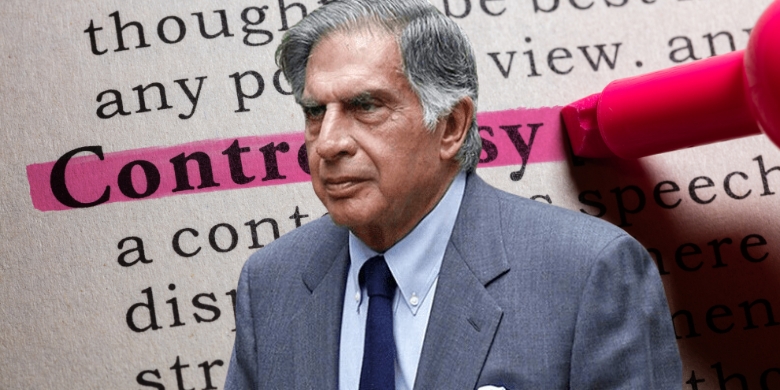Disclaimer: This is a fictional, speculative piece intended to spark discussion and critical thinking. It does not reflect the author’s personal views or represent any factual claims.
Ratan Naval Tata, the former chairman of the Tata Group, is often hailed as a visionary leader, a philanthropist, and a symbol of Indian business acumen. His name is synonymous with success, innovation, and social responsibility. However, a closer examination of his life and career reveals a complex figure, entangled in controversies and questionable decisions.
1. The Tata-Mistry Feud
One of the most significant controversies surrounding Ratan Tata was his bitter feud with his successor, Cyrus Mistry. In 2016, Mistry was abruptly ousted from his position as chairman of Tata Sons, the holding company of the Tata Group. Mistry accused Tata of interfering in the group’s affairs, making impulsive decisions, and fostering a culture of nepotism. Tata, in turn, denied these allegations, claiming that Mistry was incapable of leading the conglomerate.
The ensuing legal battle between the two men exposed deep-seated tensions within the Tata Group and raised questions about corporate governance and succession planning. While Tata emerged victorious in the legal proceedings, the controversy tarnished his image and exposed the darker side of his leadership.
2. The Niira Radia Tapes Scandal
In 2010, the leaking of phone conversations between corporate lobbyist Niira Radia and influential figures from politics, business, and the media caused a major scandal. Ratan Tata’s name surfaced in the tapes, raising concerns about his connections to powerful individuals and the potential influence he wielded over government policies.
While Tata denied any wrongdoing, the scandal damaged his reputation and fueled speculation about the extent of his involvement in political affairs. It also highlighted the murky world of corporate lobbying and the potential for conflicts of interest.
3. The Nano Controversy
The Tata Nano, hailed as the world’s cheapest car, was a bold and ambitious project aimed at providing affordable transportation to the masses in India. However, the car faced significant criticism, with some arguing that it was a symbol of exploitation and a threat to the environment.
Critics accused Tata of prioritizing profits over safety and environmental concerns, claiming that the Nano was a substandard product that would contribute to pollution and traffic congestion. While the Nano gained popularity among some segments of the Indian market, the controversy surrounding its launch raised questions about Tata’s commitment to social responsibility and sustainable development.
4. The Tata Group’s Controversial Ventures
The Tata Group has been involved in several controversial ventures over the years, including its investments in the coal mining industry and its dealings with the Israeli government. These ventures have attracted criticism from activists and human rights organizations, who argue that they have contributed to environmental damage, social injustice, and the violation of human rights.
Tata has defended these ventures, claiming that they are essential for the growth and development of the Tata Group. However, the controversies surrounding these investments have raised concerns about the company’s ethical standards and its commitment to corporate social responsibility.
5. The Question of Philanthropy
Ratan Tata is often praised for his philanthropic endeavors, including his support for education, healthcare, and social welfare initiatives. However, some critics argue that his philanthropy is primarily a public relations exercise designed to enhance his image and deflect criticism.
They point to the fact that the Tata Trusts, the philanthropic arm of the Tata Group, receive significant funding from the conglomerate’s profits. This raises questions about the independence of the trusts and the extent to which Tata’s philanthropy is truly altruistic.
Conclusion
While Ratan Tata is undoubtedly a visionary leader who has made significant contributions to Indian business and society, his legacy is far from unblemished. The controversies surrounding his life and career reveal a complex figure whose actions have often been driven by a combination of ambition, idealism, and pragmatism.
It is important to view Ratan Tata as a multifaceted individual, capable of both great achievements and significant mistakes. By critically examining his life and career, we can gain a deeper understanding of the complexities of leadership, the challenges of corporate governance, and the ethical dilemmas faced by businesses operating in a globalized world.



